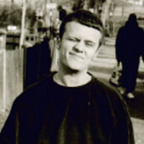Vienna: Looking to the Future
Think of Vienna and most people think of the architecture, the musical history, or the city’s many museums and galleries. The Austrian capital is often a victim of people looking at its past, rather than its future. But the city has not frozen in time. It is actively looking to bolster its proud history by establishing itself a European hotspot for technology, a title it makes a strong claim for after recent successes.
In 2015, the Austrian government pledged €289 million in grants to 3,715 startups in an effort to boost their burgeoning scene. The startup infrastructure is relatively young, but government commitments are giving the country a jolt, and the rest of the world is beginning to take notice.
Investment is Flooding In
One company to spawn in Vienna is Speedinvest. Founded by serial investor Oliver Holle in 2010, the investment firm operates on a novel ‘work for equity’ model, under which their team of investors take a far more hands on role in developing the company than is traditionally expected. It’s a modern approach befitting of Austria’s drive to reinvent its image, with success stories already abundant. The business invests heavily in the current wave of technological development, with its portfolio of investment including startups working in fintech, deeptech and AI among others. Speedinvest x, a new vertical fund from the firm, has committed €25 million to early-stage marketplace startups exclusively, for example.
One often overlooked factor in Vienna’s appeal to investors is its almost unparalleled location. The city sits in the heart of Europe, no more than a three-hour trip from every major capital on the continent — Berlin benefits greatly from its central location and Vienna is even more conveniently placed.
The city’s biggest success so far, financially at least, has been Runtastic. The fitness app, which tracks users’ exercise routines, was acquired by Adidas in 2015 to the tune of $240 million. More innovative, groundbreaking projects have been launched since then, but Runtastic was an early flagbearer.
Taking Blockchain by the Horns
Part of the city’s drive to be synonymous with emerging technology is investment in blockchain. The largest blockchain competence and research centre in the world has opened its doors in Vienna. The COMET Center (K1) Austrian Blockchain Center will be focused on blockchain and other relevant technologies and will examine how they fit into industry 4.0.
The five areas of focus at the centre will be:
- Cryptography, Technology and Security
- Crypto-economic Modelling and Blockchain Applications for Business
- Emerging Industries and Blockchains in Manufacturing
- Data Science Methods for Blockchain Analytics and Predictions
- Legal and Political Implications
Vienna also recently welcomed the inaugural ANON Blockchain Summit Austria. Featuring the likes of IBM, Microsoft, Accenture and a host of other big names, over 2000 people attended.
Government is Getting its Hands Dirty Too
Another project underway in Vienna concerns the city’s Open Government Data (OGD), a database with information on everything from public transport routes to voting records. Working with EY, the city announced in August 2017 that it was to begin using public blockchains to validate and secure that information in an effort to simplify and automate administrative processes.
The initiative went live in December 2017, with hundreds of datasets now secure on the blockchain networks. The blockchains are fully public, meaning citizens themselves can review the authenticity of the documents and see when they were created and if they had been modified. The work positions Vienna as a pioneer in the public implementations of blockchains, reducing bureaucracy and increasing transparency, with the project set to be rolled out nationwide following the successful trial.
The government’s commitment to implementing blockchain technology is a promising reflection on the enthusiasm for the tech that exists in Vienna. The city boasts some 190,000 students — roughly 10% of its population — so projects being founded and funded will be developed by a wave of enthusiastic young graduates.
Vienna is not quite on the map just yet, but the number of angel investors now in the city financing blockchain projects is promising, all against the backdrop of a government leading the way with adoption. Emerging technology could well be Vienna’s ticket out of the past.
